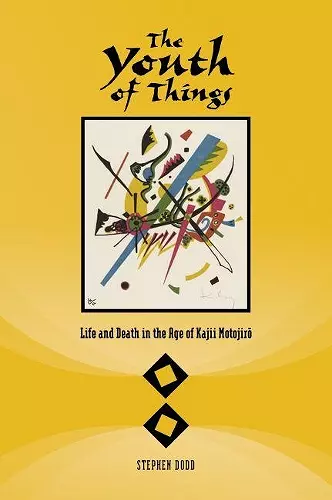The Youth of Things
Life and Death in the Age of Kajii Motojiro
Format:Paperback
Publisher:University of Hawai'i Press
Published:30th Dec '16
Currently unavailable, our supplier has not provided us a restock date

When he died from tuberculosis at the age of thirty-one, Kajii Motojir? had written only twenty short stories. Yet his life and work, it is argued here, sheds light on a significant moment in Japanese history and, ultimately, adds to our understanding of how modern Japanese identity developed. By the time Kajii began to write in the mid-1920s there was heated debate among his peers over “legitimate” forms of literary expression: Japanese Romantics questioned the value of a western-inspired version of modernity; others were influenced by Marxist proletarian literature or modernist experimentation; still others tried to create a distinctly Japanese fictional style that concentrated on first-person perspective, the so-called “I-novel.” There was a general sense that Japan needed to reinvent itself, but writers and artists were at odds over what form this reinvention should take. Throughout his career, Kajii drew from these various camps but belonged to none of them, making his work an invaluable indicator of a culture in crisis and transition.
The Youth of Things is the first full-length book devoted to Kajii Motojir?. It brings together English translations of nearly all his completed stories with an analysis of his literature in the context of several major themes that locate him in 1920s Japan. In particular, Dodd links the writer’s work with the physical body: Kajii’s subjective literary presence was grounded first and foremost in his TB-stricken physical body, hence one cannot be studied without the other. His concerns with health and mortality drove him to play a central role in constructing a language for modern literature and to offer new insights into ideas that intrigued so many other Taish? intellectuals and writers. In addition, Kajii’s early years as a writer were strongly influenced by the cosmopolitan humanism of the White Birch (Shirakaba) school, but by the time his final work was published in the early 1930s, an environment of greater cultural introspection was beginning to take root, encapsulated in the expression “return to Japan” (nihon kaiki). Only a few years separate these two moments in time, but they represent a profound shift in the aspirations and expectations of a whole generation of writers. Through a study of Kajii’s writing, this book offers some sense of the demise of one cultural moment and the creation of another.
“Kajii is one of the finest stylists in modern Japanese literature, and the field has long needed a thorough study of his art toprovide a proper assessment of his achievement. The Youth of Things provides a balanced, thoughtful, and sensitiveapproach to Kajii’s life and works, illuminating their significance for readersand opening a range of possibilities for interpretation. Dodd has also done amarvelous job at rendering eighteen of Kajii’'s major stories into polishedEnglish, and so the volume creates a wonderful dynamic between criticism andappreciation.” —Dennis Washburn, author of Translating Mount Fuji: Modern Japanese Fiction and the Ethics of Identity; “Kajii Motojir? may not be a household name, even within Japan. Now, however, thanks to this highly accessible and comprehensive study of Kajii’s work and literary contribution, he is likely to receive more of the attention his work surely merits. Dodd’s analysis of Kajii’s small but significant oeuvre is incisive and the translations of most of the author’s completed stories (the majority of these appearing in English for the firsttime) benefit so much from the years Dodd has spent honing his art. This volume will appeal both to those with a background in twentieth-century Japanese fiction seeking to familiarize themselves with a name that may not have been on their radar, and to the newcomer wishing to become better acquainted with the literary culture of pre-war Japan.” —Mark Williams, author of Endo Shusaku: A Literature of Reconciliation
ISBN: 9780824867683
Dimensions: unknown
Weight: 460g
304 pages